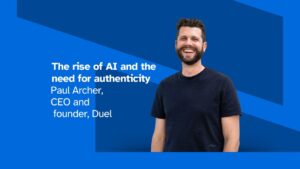The world of marketing technology has never moved at a faster pace, says digital evangelist and author Scott Brinker – and for good reason.
The technologist and futurologist believes that the direction of travel was already set, but believes that the coronavirus pandemic has shocked many marketers from strategy into action.
His interview with New Digital Age comes ahead of Brinker’s appearance at the DeepCrawl Live 2020’s virtual seminar this week, which helps CMOs to drive growth through digital innovation.
Brinker is the VP Platform Ecosystem at HubSpot. He shapes the company’s platform strategy and leads business programs for its global technology partner ecosystem. He was previously the co-founder and CTO of ion interactive, and since 2008, he has run the Chief Marketing Technologist blog, chiefmartec.com.
The conference will offer up insights from The Digital Future report, produced by DeepCrawl in collaboration with Econsultancy.
The report, based on a survey of 366 professionals in marketing, data and technology, will reveal the value of SEO and organic search in striving for top digital performance, in the context of the increased importance of digital channels due to the pandemic.
Brinker says that in the past decade there has been a “tremendous” amount of innovation and competition in marketing technology. “What we saw here in 2020 was that the adoption of this technology and putting it into practise has accelerated this immensely in pretty much every company. In a Covid world digital channels become really the only way for us to find and engage with our customers.”
He says this diversion is as true of business-to-business activities as B2C. And both customers and businesses have been forced to try different things, particularly technologies, during lockdown and some of that behaviour will stick for the better.
“We all wish it was under other circumstances but one of the benefits of having been forced to try this is there’s been a whole bunch of companies and customers who now that they’ve tried it, prefer it.”
He adds: “At the moment it’s very much an evolution of more tangible ways for customers to serve their needs. If a customer doesn’t have to go to a physical location, or if they don’t have to go to a physical event, or they don’t have to like spend their time with a salesperson, the more that they’re able to like get the answers that they want or buy the products and services that they want.
“That could be either a website or using their mobile app, or a chatbot. These are the sorts of changes that are happening because currently these channels can be more convenient for customers, but also partly it’s just changing behaviours. There are shifts happening here.”
That said, once the pandemic conditions ease, he believes that some habits will revert back, though not to the extent of before. Many will want the physicality of retail stores. “There will be something of a pendulum swing,” Brinker predicts. “Just because there is so much pent-up demand.”
For business there is no way back. FMCG brands will continue to plough a direct-to-consumer funnel, giving them direct access to the consumers they want to reach.
He concludes that the biggest challenge of the next ten years lies not in the opportunity of artificial intelligence and machine learning but the ethics of it.









